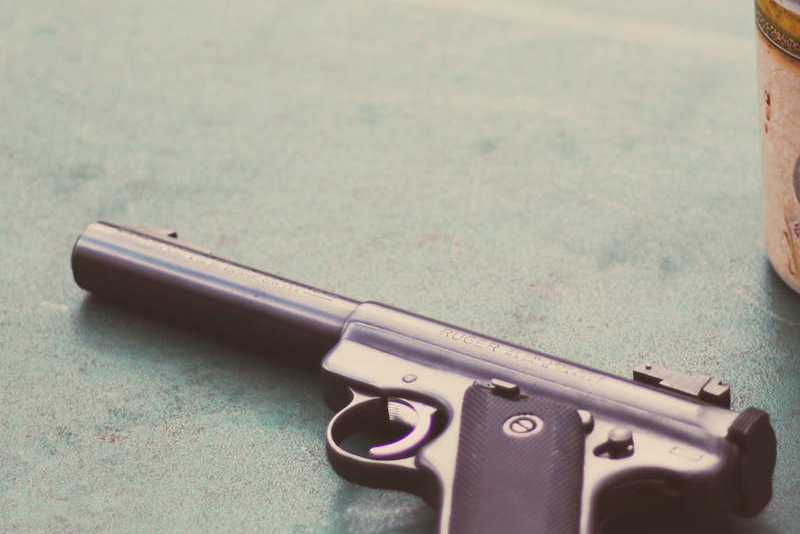Nevada’s Stand Your Ground Law and Self-Defense Rights

If you’ve heard the phrase “stand your ground” in the news or pop culture, you may be wondering what it actually means from a legal perspective. In Nevada, our stand your ground law is part of the state’s broader self-defense statutes.
It provides legal protections for individuals who use force, including deadly force, to defend themselves in certain situations. As experienced criminal defense attorneys, we know how critical it is for Nevadans to understand the ins and outs of this complex law.
In this article, we’ll break down when lethal self-defense is justified under Nevada law, the limits of stand your ground protections, how to prove self-defense in court, and other important considerations for self-defense and firearms in our state. Let’s dive in.
When is Deadly Force Justified Under Nevada Law?
Nevada law recognizes that there are times when using deadly force is necessary to protect your life or safety. Specifically, Nevada Revised Statutes (NRS) 200.120 and 200.160 outline the circumstances that legally justify homicide in self-defense.
Under NRS 200.120, also known as Nevada’s “castle doctrine,” you have no duty to retreat before using deadly force if an intruder is forcibly and unlawfully entering (or attempting to enter) your home or occupied vehicle. In these situations, the law presumes you have a reasonable fear of imminent death or serious bodily harm.
More broadly, NRS 200.160 states that homicide is justifiable when committed in self-defense if the person has reasonable ground to apprehend a design on the part of the other person to commit a felony or to do some great personal injury, and there is imminent danger of that design being accomplished.
What Counts as Reasonable Fear?
A critical component of justifiable homicide in self-defense is having a “reasonable fear” of imminent death or serious bodily harm. This means that a reasonable person in the same situation would also perceive a genuine threat.
Imagine your neighbor gets angry and yells, “I’m going to kill you!” as you argue over a parking spot. That statement alone likely wouldn’t justify using deadly force against them. But if that same neighbor pulled out a knife while yelling and advancing towards you, that would probably create a reasonable fear of imminent danger.
Proportional Force is Key
Even if you have a reasonable fear, Nevada law only permits you to use a degree of force that’s proportional to the threat you’re facing. If someone shoves you during an argument, you can’t legally shoot them and claim self-defense because the force wouldn’t be proportional. But if they shoved you and then pulled out a gun, using deadly force to protect yourself could potentially be justified.
Limits on Nevada’s Stand Your Ground Protections
While Nevada’s stand your ground law offers robust protections for self-defense, it’s not a blank check to use deadly force whenever you feel afraid. There are some significant limitations to keep in mind.
First and foremost, stand your ground isn’t an absolute right to kill. If you’re the initial aggressor who provokes a confrontation, you typically can’t escalate the situation and then claim you were standing your ground. There may be an exception if you attempt to withdraw from the situation and the other person continues or escalates their threat. But in general, aggressors can’t hide behind stand your ground.
Imperfect Self-Defense in Nevada
In some cases, a person may have an honest but unreasonable belief that they need to use deadly force to defend themselves. This is known as “imperfect self-defense.”
Here’s an example: Let’s say Dan hears a noise outside his house at night. He looks out the window and sees a shadowy figure that he believes is an armed intruder. Dan grabs his gun, confronts the individual, and shoots, only to discover it was actually his neighbor who was walking their dog.
In this type of situation, Dan had an honest belief he was in danger, but that belief wasn’t objectively reasonable. Imperfect self-defense doesn’t provide complete legal justification the way regular self-defense does. However, it can potentially reduce murder charges to voluntary manslaughter, which carries less severe penalties.
Proving Self-Defense in Nevada Criminal Cases
If you’re facing criminal charges after using force to defend yourself, you may be wondering how to prove it was justified self-defense. In Nevada, the burden of proof starts with the defendant (the person claiming self-defense) to provide some evidence that they acted in lawful self-defense.
This evidence could include witness testimony, 911 calls, video footage, or documented injuries. If the defendant meets that initial burden, then the prosecution has to prove beyond a reasonable doubt that it wasn’t lawful self-defense.
Some key factors that can help prove self-defense include:
- The other person had a weapon
- You sustained injuries consistent with an attack
- Witnesses corroborate your version of events
- You called 911 to report the incident right away
- The other person has a history of violence or aggression
Other Considerations for Self-Defense and Firearms in Nevada
If you own firearms in Nevada, it’s crucial to understand how our state’s stand your ground law intersects with other gun laws. Contrary to popular belief, having a concealed carry permit or registering your firearms isn’t required to legally use a gun in self-defense in Nevada.
However, if you plan to carry a gun in public for self-defense, you must have a Nevada concealed carry permit or a permit from a state that Nevada honors. Open carry is legal without a permit, but it’s more heavily restricted in certain locations.
Proper firearms training and safety practices are essential for gun owners, especially if you may need to use your gun defensively. Regularly practicing at the range can help you build muscle memory and accuracy under stress. Safely storing your guns can prevent unauthorized access and tragic accidents.
Putting It All Together
We covered a lot of ground in this article, so let’s recap the key takeaways about Nevada’s stand your ground law:
- Nevada law allows you to use deadly force in self-defense when you have a reasonable fear of imminent death or serious bodily harm, or to prevent a forcible and unlawful entry into your home or occupied vehicle.
- The force used must be proportional to the threat you’re facing.
- Stand your ground doesn’t give you an absolute right to kill, and initial aggressors usually can’t claim the protection.
- Imperfect self-defense may apply if you have an honest but unreasonable belief that lethal force is necessary.
- If you’re facing charges, you need evidence to support your self-defense claim. Useful evidence includes witness statements, 911 calls, injuries, and the other person’s history of violence.
- Understanding how stand your ground ties into Nevada gun laws around open and concealed carry is crucial for responsible gun owners.
If you or a loved one are facing criminal charges after acting in self-defense, you need to have experienced legal counsel in your corner. At the Benjamin Durham Law Firm, we have a deep understanding of Nevada’s self-defense laws and a track record of success in protecting our clients’ rights and futures.
Don’t face this situation alone. Contact our office today for a confidential case review. We’ll listen to you, explain your legal options, and build a strategic defense tailored to your circumstances. With our attorneys by your side, you can feel confident that you have an advocate fighting for your freedom and reputation.



